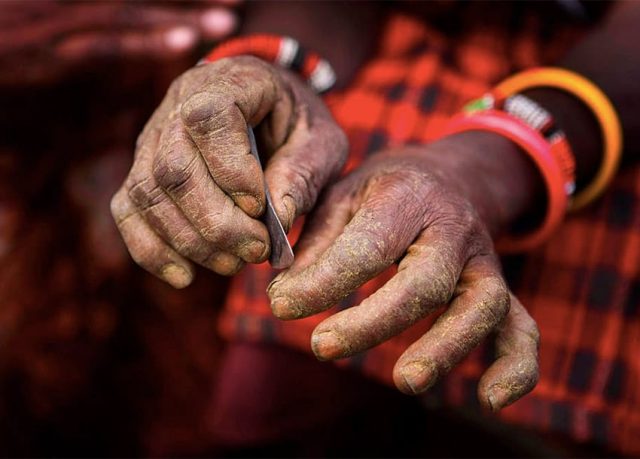
Female Genital Mutilation is illegal in Kenya and the Law imposes tough penalties on perpetrators and those abetting the practice. The law also prohibits cross-border FGM and bars medical caregivers from carrying out the practice. The World Health Organisation (WHO) defines FGM as all procedures that involve partial or total removal of the external female genitalia, or other injuries to the female genital organs for non-medical reasons.
Although against the law and in decline, FGM continues to be practiced in Kenya amongst most ethnic groups to varying extents. Statistics show that FGM is mostly performed on girls and young women between the ages of 12
and 18, although there is some evidence of a trend to circumcise girls at younger ages. Twenty-eight percent of circumcised women aged 20-24 were circumcised at age 5-9, as compared with 17 percent of circumcised women
aged 45-49. Twenty-one percent of women aged 15-49 have been circumcised.
Youth and Gender Chief Administrator, Rachel Shebesh now says that the government will offer alternative sources of income for people practicing Female Genital Mutilation in an effort to end the vice. Shebesh noted that it is a shame that the prevalence rate are on a rise yet so much has been done to beat it.
“If we can penetrate the cultural issue around FGM, we can end the issue of cutting. As we are working towards it there are those who are still doing this thing under the ground. Through our local leaders, we can call upon women who carry out FGM, give them money from the government so they can stop it, because if that what they use to feed their families, then they will not stop carrying out FGM,” she said
Through the program in partnership with United Nations Population Fund, the ministry of Gender has set out to traverse four counties where the vice is on high alert. FGM has been associated with severe bleeding that could cause death and problems urinating, and later cysts, infections, as well as complications in childbirth and increased risk of newborn deaths.

